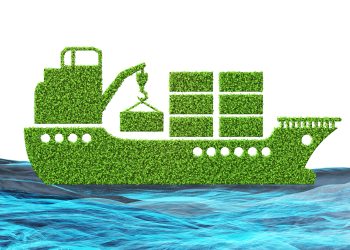The Paris Agreement has legally entered into force 30 days after the EU’s ratification pushed it past the threshold to take effect. The historic event comes less than a year after the landmark agreement was adopted and just days ahead of the UN climate conference in Marrakech, Morocco.
The Vice-President in charge of the Energy Union, Maroš Šefčovič said:
“Today’s entry into force of the Paris Agreement, less than a year after its adoption, shows one thing: that the entire world shares a pressing sense of urgency when it comes to fighting climate change. Inaction is not an option; slowing down is not our course of action. We are ready to seize this momentum to speed up work on the clean energy transition, in our Union and globally. We are ready to work at all levels, including the local level, to bring the benefits of this transition to our citizens.”
Commissioner for Climate Action and Energy Miguel Arias Cañete said:
“This is a great day for Europe and for the planet. I am delighted that the EU’s ratification has enabled the Paris Agreement to enter into force in time for our meeting in Marrakech. We must maintain this extraordinary momentum by encouraging countries to continue ratifying the deal, and by moving full steam ahead with our preparations to put it into action across the world. Marrakech will be about action and implementation. It’s time for results.”
The annual United Nations climate change conference will take place from 7 to 18 November 2016 in Bab Ighli, Marrakech. Following the rapid entry into force of the global climate deal, the first meeting of the Parties to the Paris Agreement will also open during the conference.
The Marrakech conference aims to demonstrate that the shift to a global low-carbon economy is underway, and act as a catalyst for further action. As the global climate agreement has entered into force much earlier than expected, the EU is keen to move rapidly on the international framework to help countries put in place the policies and measures to deliver on their Paris pledges. This means that the work programme established in Paris, and started in Bonn earlier this year, must advance as swiftly as possible, while keeping participation open to all countries regardless of whether they are still ratifying the Agreement.
The EU expects to see tangible progress on key elements of the Paris package, including on access to finance for developing countries and on developing and strengthening the skills and processes needed in developing countries to implement their domestic climate plans. The EU and its Member States are the biggest contributors of public climate finance to developing countries. Together they provide around a third of public funding available for action to tackle climate change and account for almost half of the pledges in the Green Climate Fund.
COP 22 will have a strong focus on strengthening climate action before 2020, when most of the national climate action plans put forward by countries in the run up to Paris start. The high-level event on global climate action on 17 November and the thematic action days being held throughout the conference offer an opportunity to reflect on progress made on existing initiatives as well as for announcements of new initiatives.
The EU will be represented in Marrakech by László Sólymos, Minister of Environment for Slovakia, which currently holds the presidency of the Council of the EU, and Miguel Arias Cañete, EU Commissioner for Climate Action and Energy.
Source: EU Commission

































































